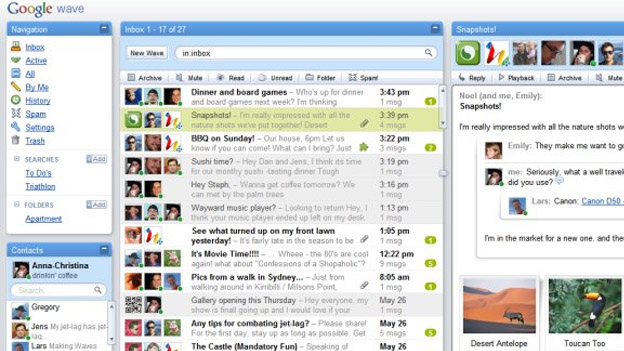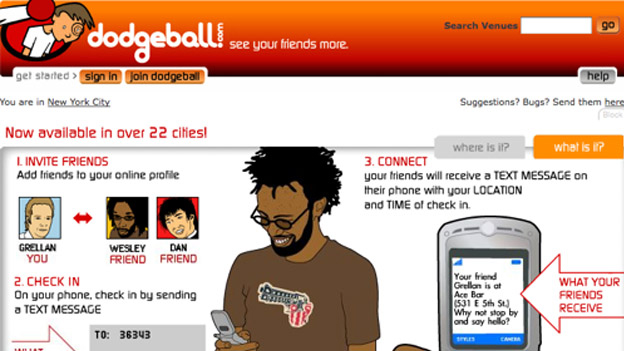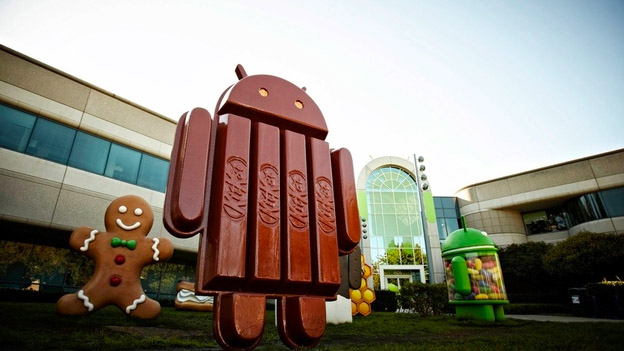Google at 15: from the garage to Glass
The world's most important tech company celebrates a milestone birthday
Google Fail
However, it's not like everything Google touches turns to gold. For every success the company has enjoyed down the years, there's been a failure.
As much as Mountain View endeavours to make the Google+ social network the centre of its ecosystem, users just aren't biting.
Its previous social experiments, Buzz and Wave were not well received. It also bought mobile social network Dodgeball in 2005, before the founder Dennis Crowley got frustrated with Google and left to start Foursquare.

Jaiku, a microblogging platform Google purchased in 2007, went the way of the dodo, while Google Latitude, a Google Maps tool that broadcasts the users location, was met with trepidation.
The iGoogle personalised homepage, which has been re-imagined on Android as Google Now, was another casualty on the web.

More recently, the cloud-based Chrome operating system, which features a suite of web apps and appears on Chromebook devices with little or no local storage, hasn't been around quite long enough to be deemed a failure, but it can't be deemed a success either.
Google TV, the company's effort to bring its search expertise to the TV world, allowing live television and on-demand video platforms to be seamlessly integrated and joined by high-powered Android apps and games seemed like a good idea in principal. It somehow snatched failure from the jaws of success and now the tech world is simply waiting for Apple to jump on board.
Get daily insight, inspiration and deals in your inbox
Sign up for breaking news, reviews, opinion, top tech deals, and more.
Controversies
Google's company motto 'Don't Be Evil' is a commitment to doing right by the world with the idea that it'll prove beneficial from a business standpoint in the long run.
It's a noble and rare ethos for a company with a market cap of around $300 billion, and although the world is probably a better place thanks to Google, the motto has left the company open to criticism when it is deemed to fall short.
Rivals and competition regulators in the EU and US have accused Google of manipulating its search results to ensure its own products, such as Google Play apps, are ranked higher than more popular iPhone apps.
And Google has been in trouble in multiple countries, including the UK, for harvesting date from public Wi-Fi networks while driving around in its Street View cars. This was dismissed by Google as a simple mistake.
Then there was a consolidation of 60 privacy policies from its various products (YouTube, Gmail, Chrome etc) into a single document in 2012 which didn't give users the opportunity to opt out.
Google is also good at putting people in their place over their data. In August this year the company said its 425m Gmail users should have "no reasonable expectation" of privacy.
Then in same month, the company claimed UK privacy laws have "no jurisdiction" over the company, amid allegations it by-passed do-not-track software within Apple's Safari browser in order to provide personalised ads for users.
And then there's the small matter of tax. The incredibly small matter of tax, as far as Google is concerned. The company generated £11.5 billion in revenue from the UK between 2006 and 2011 and only paid £7m in corporation tax, claiming it pays the tax that is required of it by law.
And don't get us started on Android KitKat.

'Don't Be Evil,' is seems, has proved more of a guideline than a rule over the last 15 years.
The Future
However, the positives far outweigh the negatives. It's been an incredible 15 years for Google, during which those two lads from Stanford University have genuinely changed the world.
But could the next 15 years be even bigger?
In the immediate future, the potential for Android to invade every sector of the tech industry is limitless, while the cheap Chromecast dongle, which allows mobile content to be beamed to a television is arguably a more exciting prospect than the rumoured Apple iTV set.
Google Glass is also in our sights, with the company's futuristic, Android-packing AR specs expect to launch publicly in 2014.

The headgear, packing a camera and an eye-level display and powerful applications has the opportunity to kickstart a science fiction-style wearable technology revolution, which is also likely to feature the arrival of a Google smartwatch.
Glass is just one of the projects to emerge from the secretive Google X Labs. The unit, described as "moonshot factory of Peter Pans with PhDs kind of running amok" is plotting self-driving cars and balloon-powered Wi-Fi for remote areas as well as a wind power green energy project that could replace the need for massive steel turbines, by using specifically designed tethers.
Could Google save the world? Why don't you just Google it?
A technology journalist, writer and videographer of many magazines and websites including T3, Gadget Magazine and TechRadar.com. He specializes in applications for smartphones, tablets and handheld devices, with bylines also at The Guardian, WIRED, Trusted Reviews and Wareable. Chris is also the podcast host for The Liverpool Way. As well as tech and football, Chris is a pop-punk fan and enjoys the art of wrasslin'.
